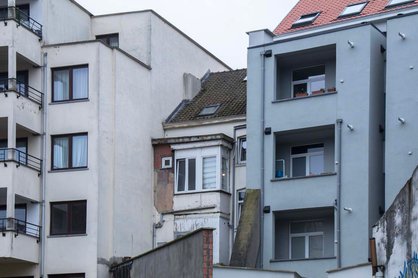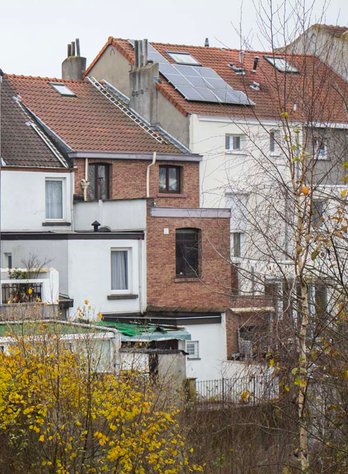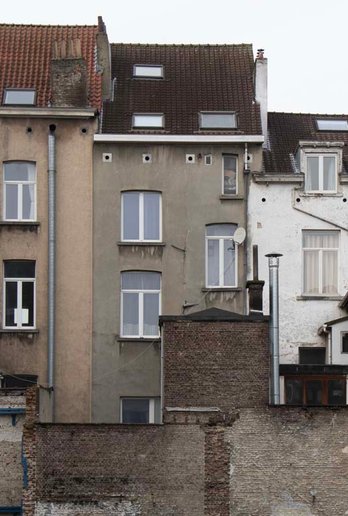
Urban planning offences are violations of the urban planning regulations that govern land use. These regulations, essential to the well-being of communities, ensure that construction and development take place in an organized and safe manner. A town-planning infringement can include building without a permit, failure to comply with approved plans or a change of use.
In Belgium, particularly in regions such as Brussels and Wallonia, there is a strict procedure for recording such offences. Only designated constables have the authority to draw up an official report. Every year, a large number of infringements are recorded, demonstrating the importance of a good knowledge of the rules in force.
Regularizing a planning violation is a crucial step in avoiding sanctions and complying with local standards. Understanding the types of infringement and the regularization process can help owners and developers navigate the compliance process. This ensures that urban development proceeds smoothly and responsibly.
A planning violation occurs when planning regulations are not respected. These rules define how land and buildings can be used.
Typical offences include :
Visit planning permission is crucial. It ensures that projects comply with planning codes.
An extension, for example, can be an offence if carried out without a permit. Local authorities often monitor such violations.
The consequences of a violation include :
Understanding and following planning regulations is essential to avoid complications.
On a related subject: Change of use: how to comply?
Urban planning offenses include a variety of acts relating to the construction and conversion of buildings without obtaining the required permits. These infringements are closely monitored, particularly in Wallonia, with strict rules laid down in documents such as the CoDT.
Work without a permit It is a major offence to carry out construction or modification work without obtaining the required permit.
Examples:

Modification of space Altering a building without authorization is illegal.
This includes :
Creating a dwelling: creating a new dwelling unit in an existing building.
Unauthorized construction All new construction is subject to prior authorization. Unauthorized construction can result in severe penalties.
Examples:
Façade and roof alterations Any change to the exterior appearance often requires a permit, for example:
(C) Antoine Horenbeek
Landscaping and fencing Exterior landscaping must comply with local regulations, for example:
Temporary installations without a permit Even temporary installations require a permit:
Consult the list of works exempt from planning permission to check whether or not your project requires a permit.

© Antoine HORENBEEK
Urban planning infringements are treated with the utmost care by the authorities, who are responsible for enforcing the law. The process involves experts and follows a precise legal procedure, involving meticulous documentation and strict formalities.
The reporting officers play a key role in identifying urban planning violations. They often come from the urban planning department and are trained to spot violations of town planning regulations.
When they observe an infringement, they draw up a procès-verbal de constation.This document must describe in detail the elements of the infringement, the place, the date and the name of theperpetrator. Officers may work in collaboration with an architect to assess the technical aspects of the constructions concerned.
The procedure for recording offences is governed by strict legal rules. And once the offence report has been drawn up, the administration can submit a complaint to the delegated official or to the King's Public Prosecutor, who decides whether to initiate criminal proceedings. This is a standard step in the handling of offences and in the framework of the law.
Visit formalities associated with a statement of offence include a set of documents that may be useful for the regularization procedure. The official report is one of the official documents sent to the owner and several other entities, including the Public Prosecutor and the municipal college.
Any holder of a real right linked to the property must be informed.
In the letter sent to the owner, the administration generally proposes to restore the property to its original state, or to apply for planning permission to regularize the situation within a given timeframe, often 6 months.
Administrative follow-up is crucial to the outcome of the procedure. If these formalities are carried out rigorously, the documentation serves not only as evidence, but also as a solid basis for any eventual control or legal proceedings.
Urban planning violations can have serious consequences for property owners. They reduce the value of a property and make it difficult, if not impossible, to sell. Legal action is often necessary to resolve these problems.
Offending buildings are subject to severe penalties. Owners may be fined for deviating from the required urban planning compliance.
If the offence persists, the situation may lead to a court hearing. court. The latter takes measures to ensure that the property complies with current standards. In addition, the competent authority can order the cessation of work or the destruction of a non-compliant construction.
The owner's civil liability is engaged, and he often has to take costly administrative steps to regularize the situation. This sometimes requires a deed of regularization, which can be long and complicated to obtain.
A finding of violation has a major impact on the sale of a property. When a potential buyer is informed of the irregularity, he or she may renounce the purchase or ask for a reduced price. The purchaser may be reluctant to buy because of the risks associated with the nullity of the deed of sale.
In any any case, it is seller, notary and real estate agent have a duty to inform future buyers of any known town-planning infringements affecting the property for sale as soon as possible. as possible.
What's more, if the property is sold without being brought up to standard, responsibility for the irregularities may be transferred to the new owner, increasing the burden of compliance procedures.
This includes possible legal and financial action to regularize the property's urban planning status. For a seller, failure to comply with the rules can make the property less attractive and more difficult to sell.
Selling a property in breach of town-planning regulations can present a number of challenges, not least the risk of the seller incurring liability. It is important for the seller to be aware of the options available to minimize these risks.
When a property is in breach of town-planning regulations, the seller can include specific clauses in the sales contract. A common clause is that of non-warranty, where the seller stipulates that he has no knowledge of any infringements other than those mentioned. This clause must be explicitly defined and accepted by the buyer to limit the seller's liability.
Another option is the warranty of eviction. This allows the buyer to request cancellation of the contract or compensation if the infringement causes difficulties after the purchase. This guarantee reassures the buyer and can facilitate the sale of the property, even if it is not in conformity.

To sell a non-conforming property, the seller may consider sale as iswhere the buyer accepts the property as is. This means that the buyer is aware of the infringements and accepts responsibility for them. This approach requires clear communication between seller, buyer and, if necessary, a real estate agent.
The public sale is another alternative. At an auction, competition between buyers can offset some of the negative aspects. Although often perceived as less profitable, this strategy can be effective for goods that are difficult to sell in other ways. This option also reduces the length of time the item remains unsold, which is advantageous for the seller.
Contact UBEX today for a free consultation!
Don't let regulatory changes take you by surprise. Anticipate and act with UBEXyour partner in real estate regulation.
Urban planning regularization is essential to bring into line constructions or developments carried out without prior authorization. This process, though complex, can be greatly simplified thanks to our expertise.
In the absence of a request for further information, processing times for planning permission vary from region to region: in Wallonia, they are generally 120 days; in Flanders, the process is often quicker. In Brussels-Capital, on the other hand, processing times are notoriously long. This frequently-criticized administrative slowness has been highlighted in numerous press articles and has prompted interventions by the Ordre des Architectes.
Request for further information: the administration almost always requests further information. This is an opportunity to discuss and negotiate with the agent the direction and adjustments to be made to the file to increase the likelihood of its success.
Regularization costs vary according to the complexity of the offence and the size of the file. We apply an hourly rate to guarantee a fair and transparent price. Our aim is simply to ensure that our experts' time is covered. This gives you the advantage that at any point in the regularization process, you are free to pause or stop the process.
Upon confirmation of your request for an assignment, we will ask you to pay a set-up fee of €350 (€423.50 incl. VAT) to cover 1/4 of the costs we have already advanced on your file at this stage (insurance, professional dues, administration, legal watch, etc.).
We will then provide you with an estimate of the services required, which will be adjusted according to the progress of your case. Prior to each of our interventions, we will inform you of the estimated hours of our experts' services, to avoid any surprises.
In terms of lead timesthe whole process can take several months, depending on the nature of the offence and the responsiveness of the local authorities. Thanks to our expertise and our relations with the planning authorities, we do our utmost to reduce these delays.
Our experience and statistics on several hundred cases have shown us that when it comes to urban planning regularization, time is an ally in achieving a smooth resolution. Our statistics show that the more pressure you put on a case, the more the positive results obtained diminish.
At Ubex, our team is made up of planning experts, architects and specialists in urban planning legislation. Our in-depth knowledge of local procedures and regulations enables us to propose solutions perfectly adapted to each situation, ensuring efficient regularization in compliance with current standards.
Continuous updating: we continuously update the legislative framework in all three regions, and our experts undergo ongoing training.
That's all we do, and that's why we do it well.
A network of contacts: for over 30 years, we've been building up our network of contacts, particularly with government agencies, by positioning ourselves as mediators rather than confronters.
Guaranteed independence: we are uncompromising on this subject, and want to remain the actor and mediator on our customers' side. We don't work for any government body.
By entrusting your project to us, you benefit from personalized support at every stage of the regularization process, guaranteeing that your property is brought into compliance under the best possible conditions.
In certain specific cases, it is possible to submit a planning planning permission without the assistance of an architect. However, this approach is not without its difficulties, and requires technical expertise to ensure the accuracy of the required documents.
Applying for planning permission without the services of an architect involves the same steps and the same documents to prepare as applying for permission with the services of an architect: plans, elevations, sections, administrative forms, statistical forms, etc.
Ubex positions itself as a trusted ally for your permit applications, even without the intervention of an architect, optimizing your chances of success in your regularization procedures.
Recent changes to planning offence legislation in Belgium have introduced greater flexibility and amnesty for certain past offences. These developments concern Wallonia, Brussels and Flanders, and have a significant impact on the management of planning offenses in the towns and cities of each region.
In Wallonia, Brussels and Flanders, local regulations have been modified to offer greater flexibility to residents and local players. Each region has adjusted its rules to harmonize procedures and simplify certain aspects of territorial development. The Code du Développement Territorial (CoDT) in Wallonia, the Règlement Régional d'Urbanisme (RRU) in Brussels, and specific planning directives in Flanders have all been revised to facilitate administrative procedures.

For example, adjustments have been made to provisions concerning building permits, making certain procedures less complex in all regions. As a result, Belgium's towns and municipalities benefit from a reduction in administrative burdens, making it easier to deal with minor infringements and offering greater legal clarity.
One of the significant changes in these regions concerns the introduction of presumptions of conformity. In Wallonia, certain work carried out before a specific date is now considered to be compliant, and similar arrangements apply in Brussels and Flanders, under certain conditions. These developments make it possible to regularize certain situations without the need for complex procedures for long-standing infringements.
For earlier offenses, amnesty measures have been adopted to alleviate litigation linked to regularizations. In Wallonia, a partial amnesty is possible for acts carried out before March 1, 1998, provided that no official report has been drawn up and that the property complies with the sector plan. Similar arrangements exist in Brussels and Flanders, although the reference dates and conditions may vary slightly according to regional regulations.
These amnesty measures offer citizens and local authorities an opportunity to regularize situations without incurring heavy penalties. This helps to reduce administrative disputes and improve the local legal climate. This change reflects the efforts of each region to ease the legal constraints weighing on their respective territories and offer citizens simplified access to compliance procedures.
So, whether you're in Wallonia, Brussels or Flanders, these legislative changes represent a more accessible opportunity for compliance, helping to reinforce harmonious urban development that complies with local regulations.

To report an infringement, you need to contact the relevant local authorities. This can be done by lodging a formal complaint with the relevant local authority. An investigation is then usually carried out by qualified officers.
Regularization costs vary according to the complexity of the infringement and regional legislation. They often include administrative costs and possible adjustments to the building or its use to bring it into line with planning regulations.
In Brussels, fines for planning violations are based on the seriousness of the offence and the type of violation committed. Criteria include the nature of the work carried out without a permit or in contravention of regulations.
In Wallonia, the statute of limitations for an urban infringement is generally set after a defined period, provided that no legal action has been taken. This period may vary according to the nature of the offence and the date on which it was discovered.
Consequences can include fines, the obligation to restore the property to its original state, or restrictions on use. In some cases, a ban on occupation may be imposed until the situation has been regularized.
You can verify the existence of a violation by consulting the town planning registers at the commune, or by requesting an inspection by the local authorities. Authorized agents will then make an official finding of any infringements present.
Author : CORNIL Olivier
Contact UBEX today for a free consultation!
Don't let regulatory changes take you by surprise. Anticipate and act with UBEXyour partner in real estate regulation.
Contact Ubex
AddressesUbex
Avenue Louise 523 B1050 Brussels
Chaussée de Marche 482 B5101 Namur
Rue Bois Gotha 98 B4000 Liège
Rue de Bart Haut 6 B6790 Aubange
Beekstraat 6 B9030 Gent
Copyright © SIZE+ srl 2025. All rights reserved.
